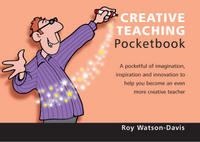
Educators are a conflicted group. The intended outcome of our activities is a nebulous concept we define as "learning" (some type of change of state or potential in the learner). We assume that through pushing buttons and pulling levers in an intricate process we call "instruction", we will be able to "create" learning. The best we have been able to do to date is create a series of guidelines and conditions in which learning might occur.
In the end, most educators will admit that we are really rather clueless about the whole learning thing. And we should be. We have taken the wrong approach. We are trying to achieve a task (learning) with a tool (teaching) in an artificial knowledge construct (courses). It's all about us.

The term learner-centered has been tossed around over the last decade, but still without significant systemic change in organizations. Our theories are coded in a field called "instructional design", our technology caries names like "learning/content management systems", etc. We use "objectives" as the framework for letting learners know what they will learn. Pause and reflect on the whole process. It's really rather comical.
I've ranted about this too often to warrant another mention, but old habits die hard: the more rapidly knowledge develops, the more useless courses become. Courses are a snapshot of knowledge at a certain time - much like a balance sheet reflects the financial health of a corporation. They serve a purpose, but more is needed. Freezing learning in a course makes no sense when learning is dynamic, ongoing, social, complex, and diverse.
If courses and programs are not able to match pace with learners needs, what's the alternative? My response is fairly simple: networks and ecologies.
Instead of designing instruction (which we assume will lead to learning), we should be focusing on designing ecologies in which learners can forage for knowledge, information, and derive meaning. What's the difference between a course and an ecology? A course, as mentioned is static - a frozen representation of knowledge at a certain time. An ecology is dynamic, rich, and continually evolving. The entire system reacts to changes - internal or external. An ecology gives the learner control - allowing her to acquire and explore areas based on self-selected objectives. The designer of the ecology may still include learning objectives, but they will be implicit rather than explicit.
 What does this "learning ecology" look like? First, it holds "content" in a manner similar to courses, but the content is not confined and pre-selected by the designer. Instead, the ecology fosters connections to original and knowledge sources, allowing for "currency" (up to date). The ecology fosters rich interaction between disparate fields of information, allowing growth and adaptation of ideas and concepts (i.e. "the verge"). Each participant in the ecology pursues his/her own objectives, but within the organized domain of the knowledge of a particular field (after all, some form of learner competence should emerge as a result of existing in the ecology). Nodes (content and people) and connections are the basic elements of a network. An ecology should permit these networks to develop and flourish without hindrance.
What does this "learning ecology" look like? First, it holds "content" in a manner similar to courses, but the content is not confined and pre-selected by the designer. Instead, the ecology fosters connections to original and knowledge sources, allowing for "currency" (up to date). The ecology fosters rich interaction between disparate fields of information, allowing growth and adaptation of ideas and concepts (i.e. "the verge"). Each participant in the ecology pursues his/her own objectives, but within the organized domain of the knowledge of a particular field (after all, some form of learner competence should emerge as a result of existing in the ecology). Nodes (content and people) and connections are the basic elements of a network. An ecology should permit these networks to develop and flourish without hindrance. What types of tools are needed for learning ecologies? I've beaten this one to death too, but here goes: blogs, wikis, groupware, collaborative tools, any connection-forming tool (Skype, phone, email, face-to-face), RSS, social network tools, etc. We are at a rather exciting time in the history of learning - a time where the learner is poised to take back the learning experience. Experts and gurus still exist within an ecology. The key difference is that they no longer dictate the environment.
What types of tools are needed for learning ecologies? I've beaten this one to death too, but here goes: blogs, wikis, groupware, collaborative tools, any connection-forming tool (Skype, phone, email, face-to-face), RSS, social network tools, etc. We are at a rather exciting time in the history of learning - a time where the learner is poised to take back the learning experience. Experts and gurus still exist within an ecology. The key difference is that they no longer dictate the environment.From a special blog on new methodologies
0 comments:
Post a Comment